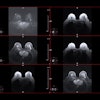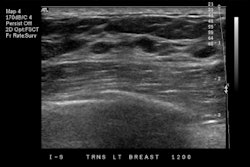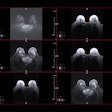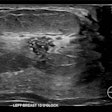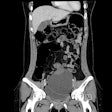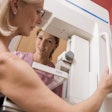A team led by Dr. Elisabeth Sartoretti from the University of Lucerne in Switzerland found that nearly three out of four women reported that it made no difference whether a female or male radiologist performed a breast ultrasound exam.
“It would appear that women examined by male radiologists are less selective about the sex of the examining radiologist,” Sartoretti and colleagues wrote.
The researchers noted that there is a trend toward fewer male radiologists who specialize in breast imaging, ultrasound included. They also pointed out a common notion that female patients are more comfortable receiving breast ultrasound exams from female radiologists.
Sartoretti and co-authors sought to explore the needs and preferences of women undergoing breast ultrasound in a multicenter study regarding the sex of the radiologist performing the exam. They included survey data from two centers. At one center, which included 72 patients, the women were examined by female radiologists only. At the other center, which included 100 patients, the women were examined only by male radiologists.
The researchers found that 74% of the total women indicated that it made no difference whether the performing radiologist was male or female. Another 25% wanted a female radiologist, while 1.2% preferred a male radiologist.
For the center with only male radiologists, the researchers found that 93% of the women examined there indicated no preferences regarding the sex of the radiologist. Another 5% preferred being examined by a female radiologist and 2% preferred a male radiologist.
The team suggested that based on these results, male and female radiologists should routinely ask patients whether they find the breast ultrasound exam setting acceptable.
It also suggested that male radiologists have importance in this area, citing growing incidence rates of male breast cancer, the growing number of transgender women with hormonal stimulation, and the prevalence of gynecomastia among men.
“Given the fact that mixed patients cohorts are examined by specialized ultrasound teams, it would be appropriate to have male doctors in radiology teams,” the study authors wrote.
The authors also wrote that they are advocating for mutual tolerance and efforts to train more male specialists in this “fascinating and increasingly important” subspecialty of radiology.
“From the patient’s point of view, a competent radiologist is most welcome regardless of his or her sex,” they added.
The full study can be found here.




